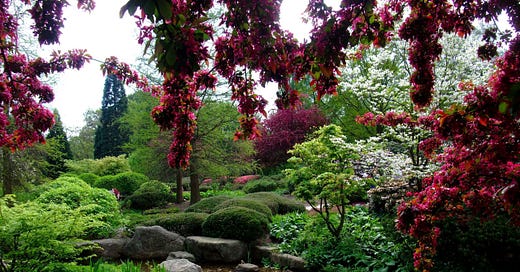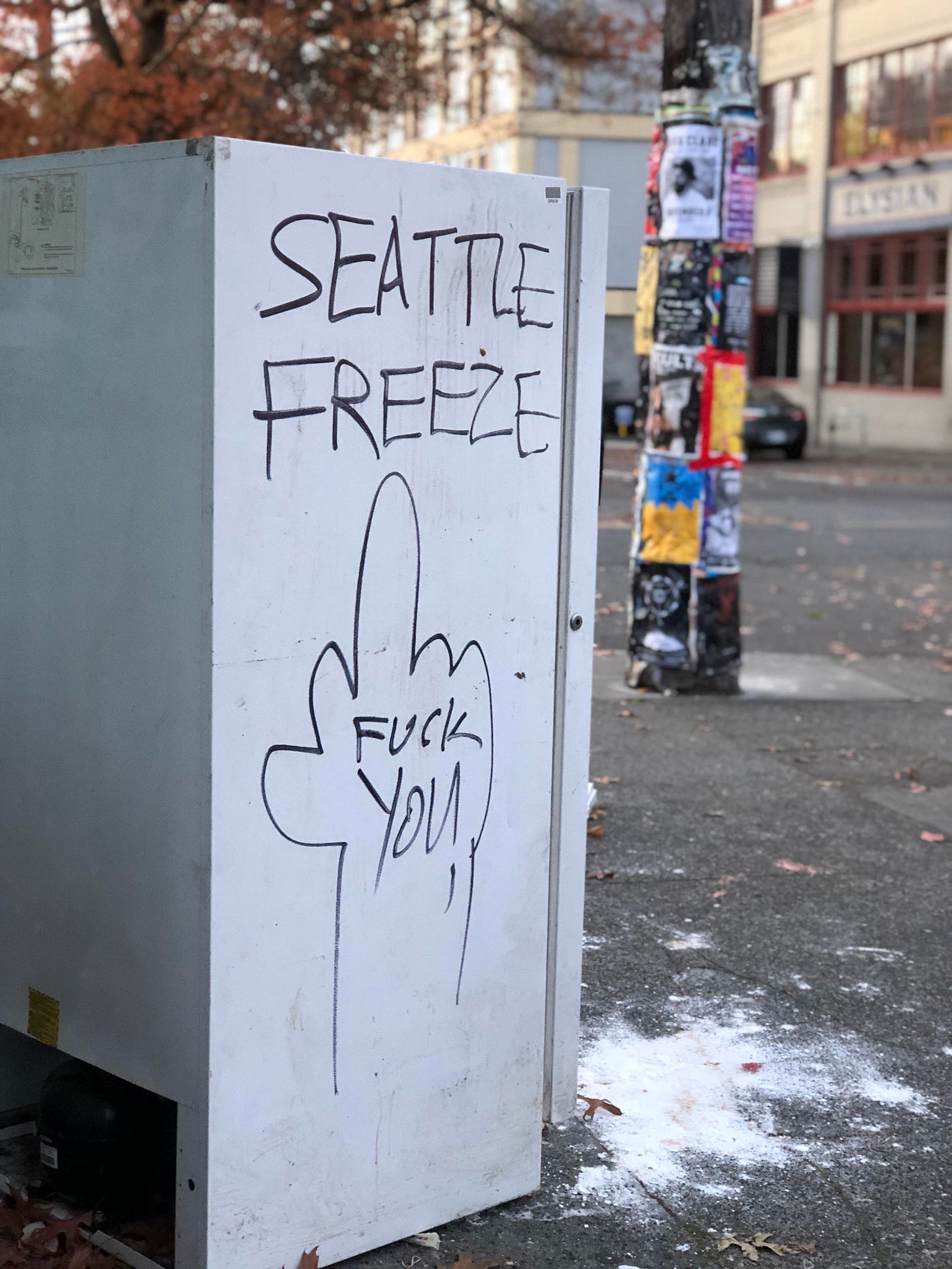At the conclusion of today’s essay, I’m going to share links to all of the newsletters I follow that I find very useful and help keep me ‘in the know’. Many of the writers are on this same platform, Substack—including Michael Moore of Bowling for Columbine fame. He just recently joined the Substack stable of writers.
I started writing this column at the onset of the pandemic in America and during one of the twelve hundred or so nadirs of the Angry Yam’s administration. (Pick a date. Any date.)
I wrote to inspire. I wrote to get a load off of my chest. I wrote to inform. I wrote in the hopes of lighting a fire under those who may have been lackadaisical about the threat to our government. I wrote to plant seeds of encouragement.
I’ve been out on the river for the past couple of weeks shedding the cares, anxieties and conundrums of modern day civilization in exchange for simpler cares, anxieties and conundrums like where am I going to find a camp, how’s the fresh water supply doing, is that kid ever going to stop jabbering and is that poison ivy little Bobby’s standing in while taking a bio-break? I’ve been out of touch with the specific goings on of the universe though I am certain herd stupidity continues to run wild, the climate continues to grow weirder, America continues to throw money at the military and defense contractors trying to solve problems better suited to time and diplomacy and American communities continue to grapple with all of the various facets of racism, homelessness and the deterioration of those communities at-large.
Because I am out-of-touch with the most current news cycle, I want to write an ode to someone I care for very much and admire for her indefatigable doggedness to bring forth community in the world.
One neighbor at a time. One coworker at a time. One friend at a time.
For the longest time, I have described myself as a Communitarian. I’m pretty sure she would describe herself as a Communitarian as well. No such word actually exists, but I like describing those of us who are adherents to bringing people together as Communitarians because we are just as wholeheartedly committed to Communitarianism as those who are religious are committed to their religious beliefs, and the communities they create.
The major issues of the planet are going to have to be addressed in a more global, national or regional way but, in the meantime, society needs as many Communitarian adherents as possible to stitch us all together outside of our tribal affinities.
Maybe you have heard of the “Seattle freeze”?
Here is what the Urban Dictionary has to say about it:
A social phenomenon commonly found in the Seattle area. It concludes the majority of Seattle residents as snobby, cold, unfriendly people with a fake-polite exterior. Many people move here with the impression that Seattleites are friendly and laid-back but upon moving quickly realizing how superficial and forced that "friendly" exterior really is. There is alot of debate as to where this social dysfunction comes from. Some say it's the nerdy tech population, some say it's the scandinavian culture, some say it's the weather, and some even say it's the transplants fault.
Transplant: Hey have you heard of the seattle freeze?
Local: No. People here aren't unfriendly. Maybe the problem is you.
Transplant: Let's hang out sometime.
Local: Umm.... I have that thing at the place at that time.
My Communitarian friend (and significant other) has made it her mission to un-freeze her neighborhood north of Ballard. Ballard being the home of many Scandinavians and a dish only Scandinavians could love called lutefisk. While she walks her dog she has managed to draw this urban neighborhood together by utilizing an incandescent smile coupled with a cheery salutation to everyone she meets.
But that’s just for starters.
She goes the extra mile by not just learning the dog’s name but also learning something about the fellow dog walker and their name. She is also not just greeting dog walkers. She cheerily waves at people trimming their hedges, taking out their garbage, watering their lawns, strolling about their neighborhood with their infant in a perambulator.
Not everyone is entranced at being hailed and acknowledged, but most are.
The next thing you know she’s sharing a bottle of wine with them one evening on their deck or on a back patio. Or she’s offering her landscaping skills. Or checking on their plants while they are away. Or connecting them to people she knows—either in the neighborhood or not—who have the skills or tools to take on tasks they need to have done. Or bringing them some rhubarb crisp, or rhubarb stalks, because it’s the neighborly thing to do and also because she has a rhubarb plant the size of a Volkswagen beetle. Or collecting their mail while they’re on vacation.
In many ways she’s created a ‘small-town’ feel to this very urban, mostly upscale neighborhood.
It doesn’t stop at her neighborhood.
She employs her penchant for community-building and her otherwise-unused Recreation degree at her place of work as well, even though her job description only encompasses marketing and sales. She’s organized employees from her place of work to volunteer some weekend time for restoring salmon habitat through one of the regional non-profit conservation groups. She makes an effort to focus not just on the physical task of restoring habitat—which predominantly involves removing the ubiquitous, thorny blackberry vines the Pacific Northwest is renowned for—but on the social bonding aspect afterwards.
At her place of business, she takes the time to get to know everyone from the lowliest hourly paid worker to the assortment of managers. As I’ve learned over the years, just taking the time to learn and remember someone’s name goes a long way to cementing connections in a community. Learning something about them takes it a step further.
Of course, she keeps and maintains strong ties within her coterie of friends from every stage of her life as well as her very social and accepting nuclear family. She, her mom and her sister are all self-taught gardeners who can rattle off information about plants like Dustin Hoffman’s character in Rain Man rattled off statistics about airline safety. Their enthusiasm regarding plants, gardens and garden spaces—and the social integration those spaces enhance—is contagious. If you hang around them long enough, you’ll likely get the gardening bug.
I’ve advocated for personally well-tended “gardens” in the past as a means of strengthening, building and maintaining communities of all sizes and I’m guessing everyone reading my words falls into the category of being “good gardeners” within their social spheres. My communitarian-minded partner, however, is pushing the envelope. Reaching just a little farther outside your normal comfort zone. Doing everything within her power to stitch a disparate urban environment together.
I think—as a society, and not just socially chilly Seattle—we need this kind of extra effort. Clearly, more than ever.
She told me the other night she invited a stranger she met, while waiting to place her order for a beer at a local brewpub, to have a drink with her and a friend. The stranger was new to Seattle and had told her his job was recruiting and that he had heard the Pacific Northwest was notoriously difficult to make inroads. She didn’t disabuse him of that notion but she was also happy to be the exception to the rule.
I read the other day in the Morning Brew about how much better we might find the world if each of us would make the effort to talk to one stranger a day. The Atlantic had run an article on the benefits of talking to strangers. Here’s what the editor of the Morning Brew, Neal Freyman, had to say:
Good morning. Sifting through the replies to yesterday’s newsletter, it became clear that one link in particular resonated with readers: The Atlantic’s article about the benefits of talking with strangers.
What is it about talking to strangers that intrigues us? Probably because we know it enriches our lives but we can’t bring ourselves to do it.
If you’re like me, you often freeze when given the opportunity to say hello to your neighbor on a plane. “What if they don’t want to talk to me?” we think. Even worse, what if they do want to talk to me? Not trying to hear about their stamp collection for three hours.
These concerns are largely imaginary, and even detrimental. Studies show that chatting with strangers can boost happiness, improve mental health, and make you feel more connected to your community.
So, in the spirit of trying something new, I’m suggesting that we all attempt to talk to one stranger today.
In light of the fact we all feel as if we are “rearranging the deck chairs on the Titanic” when it comes to the major issues of the day, carefully tending our own gardens and making an effort to gently and consciously expand that garden whenever possible is a good objective to strive for.
As a bonus—at least according to the Atlantic article—you’ll be boosting your own happiness and well-being.
Letters From an American. Heather Cox Richardson. If you were only going to read one newsletter, I’d suggest this one. A daily diary from a historian about significant events in the news.
The Root. Articles from a black perspective. Slogan - The Blacker the Content, the Sweeter the Truth. I especially like Editor Michael Harriott’s writing.
Th.Ink, Anand Giridharadas. On politics and culture, money and power.
Michael Moore. A rags to riches view of plutocracy, etc. You may know him by his documentaries.
An Irritable Metîs, Chris La Tray. Native American writer with some great stories.
Arlen’s Newsletter, Arlen Parsa. Interesting, sometimes quirky, historical observations.
Update From an Epidemic, Betsy Brown. All you need to know about COVID from a medical doctor’s point-of-view. Easily digestible info.
Culture Study, Anne Helen Peterson. Unique ‘takes’ on culture. Very eclectic.
Prevail, Greg Olear. Deep dives into politics from a progressive viewpoint.
Daily Rant, Thom Hartmann. Liberal rants with substance and plenty of info.
Thanks for reading, sharing and keeping in touch. - JLM






You have been inspiring me since the day I met you at Western back in 1997, Grand Poobah of Orion, one of the first communities I entered into as an "adult" of my own volition and love dearly to this day. I am forever grateful to be included in this community, the tribe of tired and stupid, nomads, vagabonds and wanderers, where I have met some of my dearest friends, most inspiring adventurers, favorite roomies, and my greatest love. Thank you for sharing your life and community with me. XOXO
This could be my new favorite reading spot. Love this piece.